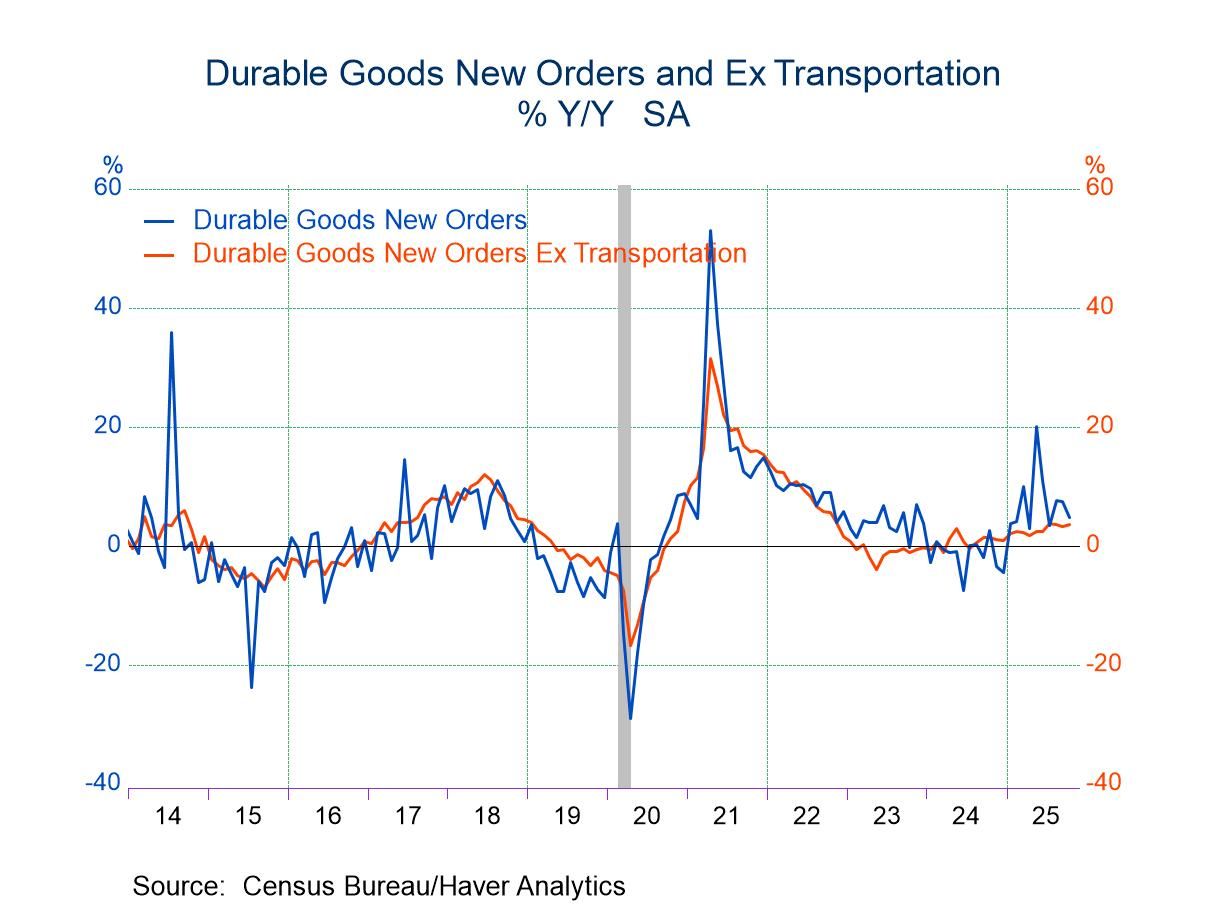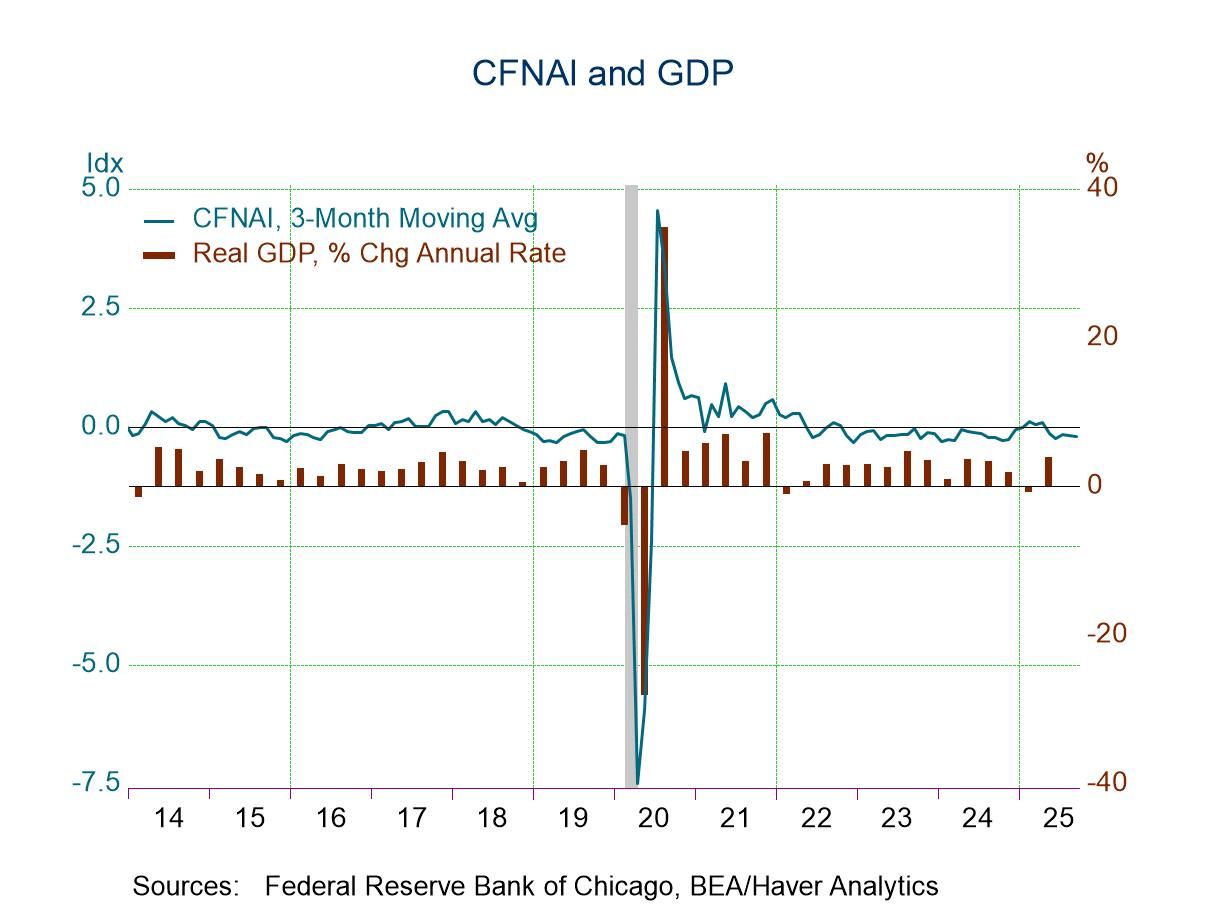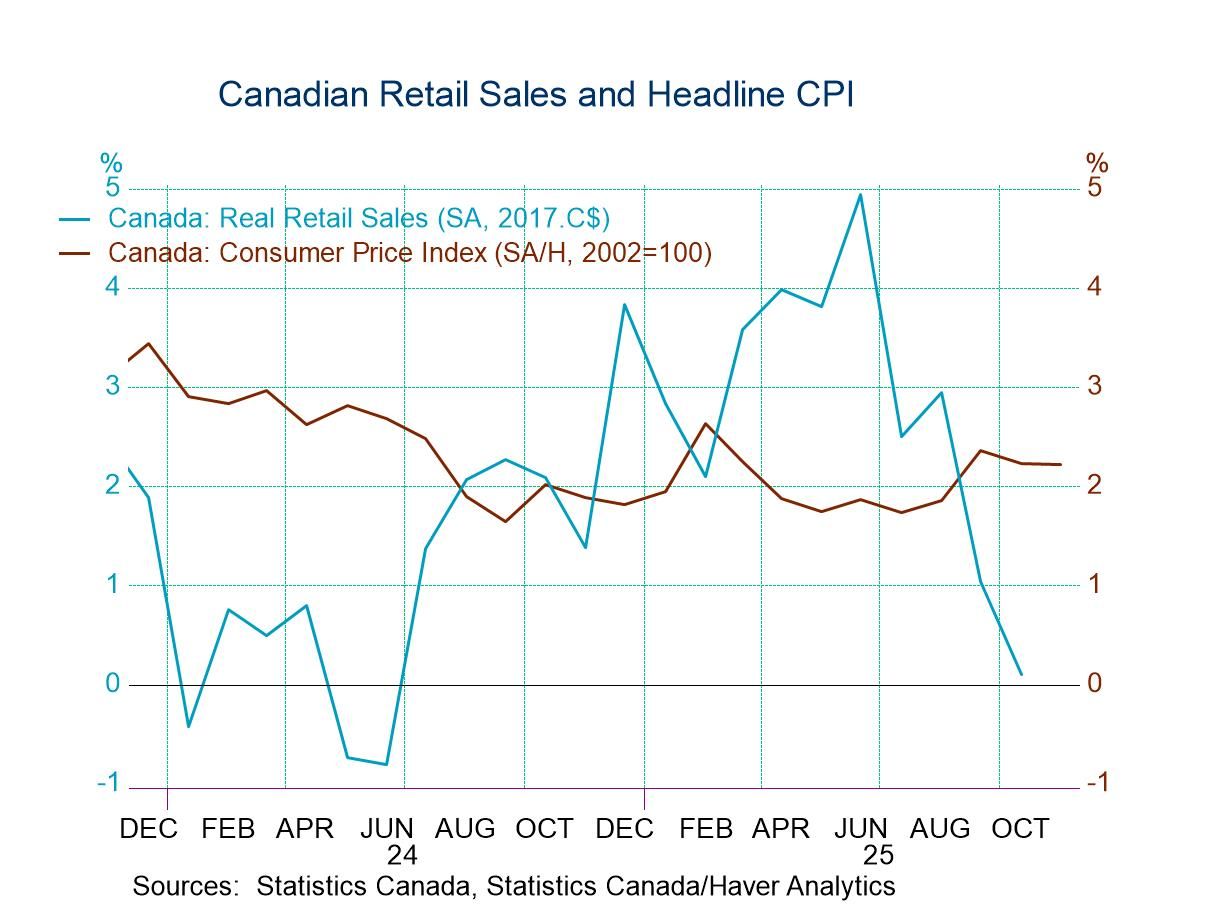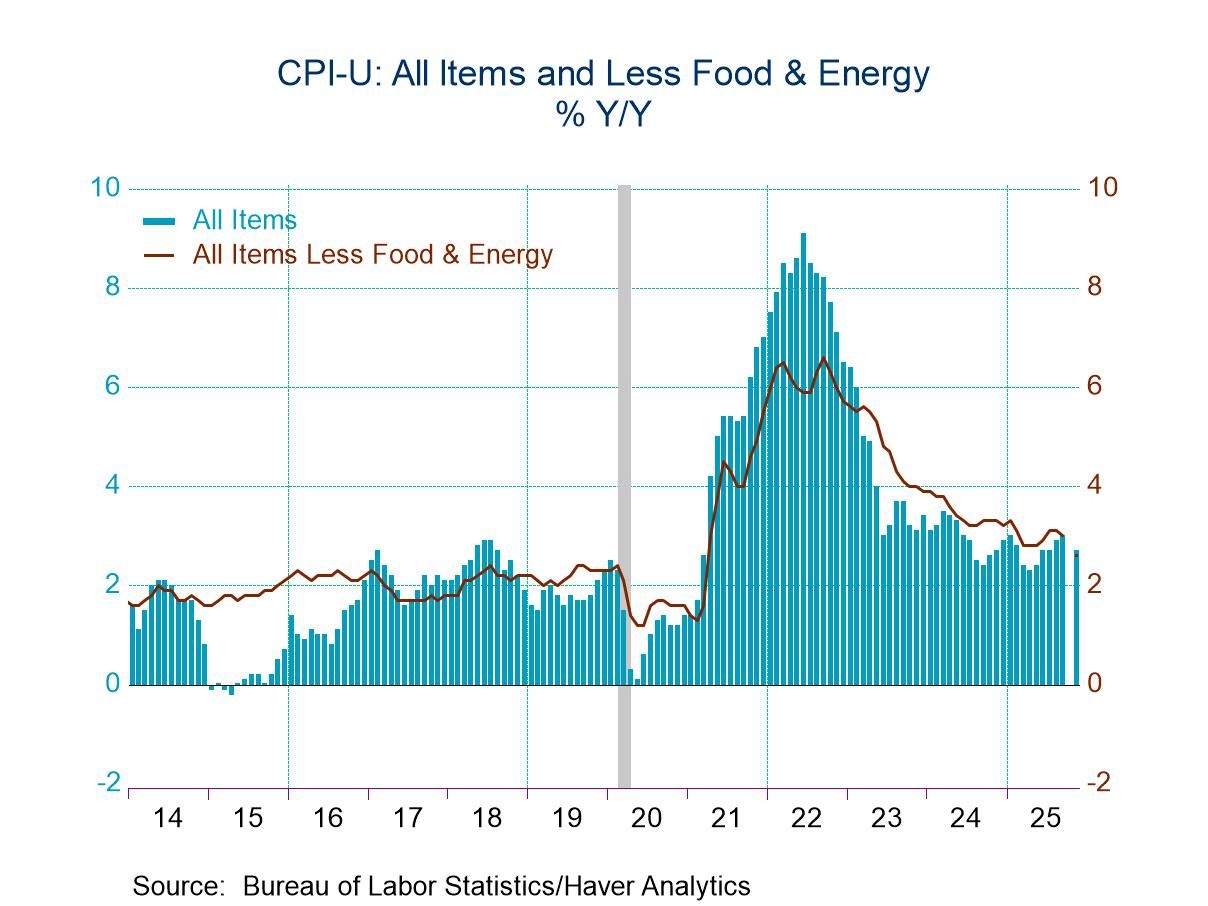U.S. Federal Government Budget Deficit Shrinks in May
by:Tom Moeller
|in:Economy in Brief
Summary
- Outlays & spending decline y/y.
- Income security outlays fall sharply.
- Interest payments surge.


The U.S. Treasury Department reported a federal budget deficit of $66.2 billion in May 2022 compared to a $132.0 billion deficit one year earlier. Receipts fell 55.0% m/m and were off 16.1% y/y while outlays declined 18.0% (-23.6% y/y). The Action Economics Forecast Survey had expected a $210 billion deficit for May. So far in FY'22, the deficit has totaled $426.2 billion versus $2.064 trillion in the first eight months of FY'21.
Overall revenues have increased 29.5% y/y so far in FY'22. Individual income tax receipts increased 45.9% y/y as employment continued to rise. Corporate tax payments rose 17.0% with strength in business earnings. Social insurance taxes rose 8.7% y/y so far in FY'22 and excise taxes rose 23.3% y/y.
Federal government outlays have declined 18.6% year-to-date in FY'22 versus FY'21. Income security payments roughly halved so far this year in the absence of economic stimulus checks. National defense outlays fell 1.8 % y/y so far in FY'22. Outlays on health programs rose 18.2% y/y in the first eight months of FY'22. Social Security outlays increased 6.7% y/y this fiscal year and Medicare outlays rose 0.8% y/y so far this fiscal year. Interest payments surged by 29.6% y/y so far in FY'22.
Haver's data on Federal Government receipts & outlays are contained in USECON. The expectations figure is in the AS1REPNA database.


Tom Moeller
AuthorMore in Author Profile »Prior to joining Haver Analytics in 2000, Mr. Moeller worked as the Economist at Chancellor Capital Management from 1985 to 1999. There, he developed comprehensive economic forecasts and interpreted economic data for equity and fixed income portfolio managers. Also at Chancellor, Mr. Moeller worked as an equity analyst and was responsible for researching and rating companies in the economically sensitive automobile and housing industries for investment in Chancellor’s equity portfolio. Prior to joining Chancellor, Mr. Moeller was an Economist at Citibank from 1979 to 1984. He also analyzed pricing behavior in the metals industry for the Council on Wage and Price Stability in Washington, D.C. In 1999, Mr. Moeller received the award for most accurate forecast from the Forecasters' Club of New York. From 1990 to 1992 he was President of the New York Association for Business Economists. Mr. Moeller earned an M.B.A. in Finance from Fordham University, where he graduated in 1987. He holds a Bachelor of Arts in Economics from George Washington University.






